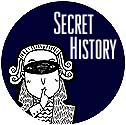
Comment
on this story |
 |

An unsilent night, and the sudden end of Will Mabry
by Jack Neely
Christmas Eve was always the biggest shopping day of the season; on that one evening, an estimated 20,000 shoppers descended on downtown Knoxville. Most of the stores along the gaslit streets stayed open until midnight. It was just after dark that shoppers on the seedier end of Gay Street heard two shots. "Such sounds echoing in the distance soon produced a crowd curious to learn anything outside the general run of everyday life," reported the Tribune. Shoppers watched as a young white man struggled up the steep hill of Vine Street until he fell, about 10 paces from Gay. After that, he did not move.
Growing up in Knoxville with the name Will Mabry was a blessing and a curse. Will's father, Joseph Mabry, was one of the richest men in town, and lived in the nice big house on the east side, with the view of the mountains and the river. Mabry had been the philanthropist partly responsible for the donation of Market Square. But Joseph Mabry was also quick to pull his pistol, and, despite his philanthropy, one of Knoxville's most feared men. Since the war, he had gotten the better of a few ungraceful scrapes.
The Mabry boys grew up with chips on their shoulders, and some of them, like Papa, were drinkers. On Christmas Eve, 1881, Will Mabry wasn't enjoying a traditional Victorian holiday by the fireside at what would be known as the Mabry-Hazen House. He was at Wade's Brickyard in North Knoxville, betting on a cockfight. That Saturday afternoon, witnesses said, he was already drunk. His companion was Constable Don Lusby. An older man of perhaps 35, Lusby was the slighter of the two; he suffered a crippling respiratory ailment for which he carried medicine. He also carried a gun.
As the sun descended, they rode their horses into town. Somewhere along the way Lusby apparently said something that set Mabry off.
The two scrapped in a lot near the railroad terminal, "knocking each other," as a neighbor said. A witness reported that one of them shouted, "God damn you, you shan't talk about my kin folks." The other said, "Come on, let's go, what are you exposing everybody for?" One, later identified as Will Mabry, responded, "You have nearly killed me when I had nothing to defend myself with." Lusby responded, "It was no such a damn thing." They remounted their horses and, just after dark, raced to a favorite bar, Alf Snodderly's place on Gay Street, near Vine.
Lusby won the race, as Mabry ruefully acknowledged. Maybe because he was ahead in the men's competitions that day, maybe because he sensed Mabry was dangerously angry, Lusby seemed eager to put their troubles aside. He went into Snodderly's, where there were nearly a dozen men, including Alf and his bartender, Harry Hodge. Lusby ordered a decanter of apple brandy, with a couple of glasses. He offered one to Mabry.
The younger man refused. "Don, you have abused and struck me," he said. Lusby asked Mabry if he was above drinking with him. Mabry insisted that Lusby had assaulted him; Lusby called him a "damned, infamous liar," and took off his overcoat. Some would recall that he said, "I can whip you again," to which Mabry responded, "Come on."
"Can't say who struck the first lick," Ed Day, one of the bar patrons, would remember. But Will picked up a coffee saucer and struck Lusby in the face with it, a solid blow that left a ceramic shard imbedded in Lusby's forehead. The wound bled into his eyes. Doctors would later claim the blow was so severe that it could have clouded his thinking.
Mabry ran out of the bar, followed by Lusby, who was having trouble seeing through the blood. He reached into his pocket and drew a pistol. "Where is the damn thief at?" he demanded. Mabry was hiding behind a pedestrian, "a tall drunken man" who happened to be standing on the sidewalk just beyond a gaslight. Lusby didn't spot him at first. Then Mabry ran toward Vine. Lusby fired a shot that struck him in the neck. One witness overheard Lusby say, "God damn you, I will kill you." Then he fired another shot. Mabry was still afoot, running up Vine, toward the Catholic church, until he fell. Ed Day, from the bar, was the first to reach him. He asked Mabry if he was hurt. But, as the Tribune reported, "the lips were closed in death."
The sheriff allowed Lusby to keep his pistol in the jail cell for the first day or two, an irregularity in protocol. The hearings began on Sunday, Christmas morning, as Judge James King heard a parade of 50 witnesses describe the fight; each account was slightly different from the one before, some portraying Mabry as the aggressor, some Lusby.
The funeral, the day after Christmas, included a procession to Old Gray. It was reportedly "the longest funeral cortege we have seen in many a day."
The Tribune concluded, "The deed committed on Christmas Eve has thrown a damper over the entire community, and the man who drinks his glass of whiskey to produce gaiety does so with a shudder."
The new year would bring fascinating developments in the Lusby-Mabry debate. Lusby's murder trial ended that spring with a hung jury, and Lusby's release on bail. Before the next winter arrived, five more men were dead: Lusby himself; his brother, Moses; Will Mabry's brother, Joe; their famous father, Joe Mabry Senior; and banker Thomas O'Conner, the personal enemy whom Mabry Senior had accused of hiring Lusby as a hit man. All were victims of gunshot wounds. Scores were settled.

December 18, 2002 * Vol. 12, No. 51
© 2002 Metro Pulse
|





